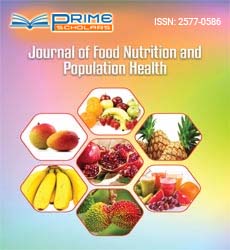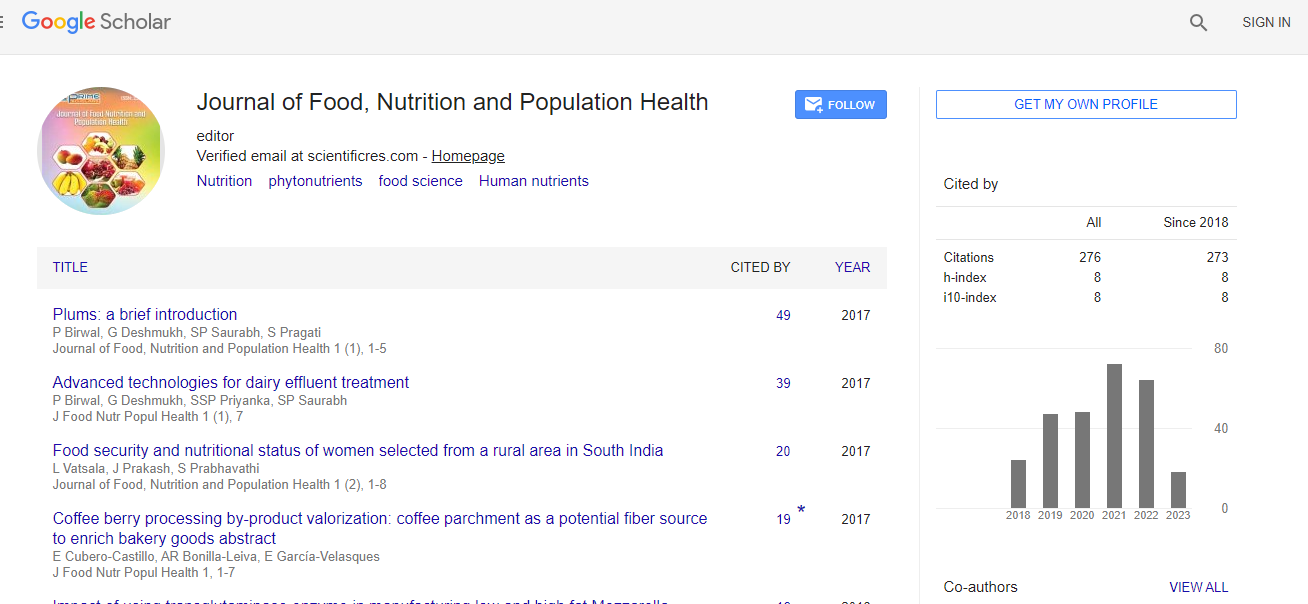Opinion - (2023) Volume 7, Issue 1
Adverse Events of Pharmacological Interventions
Atsumi Naito*
Department of Community Science, Gadjah Mada University, Indonesia
*Correspondence:
Atsumi Naito,
Department of Community Science, Gadjah Mada University,
Indonesia,
Email:
Received: 02-Jan-2023, Manuscript No. ipjfnph-23-15600;
Editor assigned: 04-Jan-2023, Pre QC No. ipjfnph-23-15600 (PQ);
Reviewed: 18-Jan-2023, QC No. ipjfnph-23-15600;
Revised: 23-Jan-2023, Manuscript No. ipjfnph-23-15600 (R);
Published:
30-Jan-2023, DOI: 10.21767/2577-0586.7.01.01
Introduction
The ratings showed a high level of agreement with the statements
we made. In 2 out of 3 ratings, reviewers agreed that
the outline revealed new information not recently known from
trapped SRs (66%). In the majority of reviews, reviewers agreed
that outlines improved the current literature on the topic (94%)
and that outlines were more valuable to clinicians than included
SRs (84%). The exhibit will outline the value of studying AEs
in the clinical setting on many levels, highlighting the ability,
as suggested by Cochrane, to provide clinicians and patients
with “friendly front-end” data. The main currently accessible
direction explicitly associated with the AE scheme outlines
“evidence of unfriendly effects of mediation from at least two
methodological purpose tests of mediation for at least one situation.”
“Helps identify and explain occurrences of anomalous
events.” There could be no further direction on how precisely
this can be accomplished in outlines exploring AEs. Our evaluations
feature two vital parts of clinical utility that can illuminate
creators who wish to plan and lead an outline on AEs First and
foremost, the capacity to sum up proof from various SRs, and
besides the likelihood to direct a new meta-investigation with
existing information.
Description
Outlines basically summing up proof from the included SRs
were seen as especially helpful if extra appraisals (e.g., of strategic
quality, essential review cross-over, or of the conviction
of the proof) were led and the aftereffects of these evaluations
were introduced in the outlines. As per our past examination
of the strategic methodologies of the outlines remembered for this review, most of outlines led and introduced the aftereffects
of an evaluation of systemic nature of included SRs (69%). Different
evaluations, for example, the examination of essential
review cross-over and an appraisal of the conviction of proof,
which are both suggested in the Cochrane Handbook, were
directed substantially less much of the time (21%, 34%). In
any case, albeit the outlines were seen as supportive, peruses
should have the option to depend on these appraisals. This way
it should be properly directed to be trusted. Until there is clear
guidance on AE contours, sketch authors should refer to the accessible
instructions provided in the Cochrane Handbook. Additionally,
summarizing evidence from trapped SRs is useful because
it provides users with aggregated data that could never
be placed in a single SR, but which must be ruthlessly extracted
from a single SR anyway. It was thought another property of
outlines that has been found useful for AE is to show reliable
SR results or to show and discriminate contradictory results.
Conclusion
All reviews of drafts that ran new meta checks deemed these
new checks to be of value. Overall, this increases the number
of members and opportunities and increases the certainty of
the outcome. In addition, current information can be used to
answer explicit exploratory questions that poor people have
investigated up to that point (e.g., perform meta-examination
of information about specific subgroups). To use existing information
to meet unexpected demands compared to accessible
SRs, it may be necessary to consider removing important information
from the SR and analysing it in a different way than
the initial investigation. For this situation, Cochrane prescribes
a reanalysis of the information.
Citation: Naito A (2023) Adverse Events of Pharmacological Interventions. J Food Nutr Popul Health. 7:01.
Copyright: © 2023 Naito A. This is an open-access article distributed under the terms of the Creative Commons Attribution License,
which permits unrestricted use, distribution, and reproduction in any medium, provided the original author and source
are credited.

